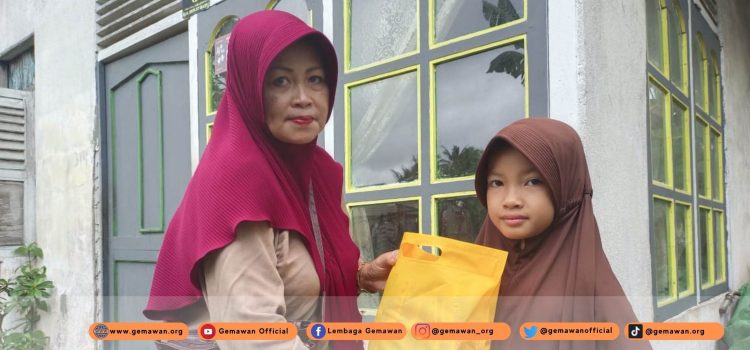
“We don’t need big assistance. Just simple facilities—so that waste doesn’t become a burden.”
— Nurpunati, Serumpun Sejati Waste Bank, Singkawang.
At a quiet corner of H. Basuni Street, in Bukit Batu Subdistrict, Singkawang, Nurpunati has been weaving an extraordinary story since 2015. Moved by the sight of piles of trash with no apparent value, this Javanese-born woman founded the Serumpun Sejati Waste Bank—an initiative inspired by successful waste management models from Indonesia’s big cities.
At first, few believed in her idea.
“People said it was a pointless job. But I believed that waste could be a blessing,”
she said firmly, her conviction as steady as her hands sorting bottles and cans.
Every day, Nurpunati and her small team work through heaps of plastic bottles, cans, cardboard, and used cups. The waste is carefully sorted and later sold to the Main Waste Bank (BSI).
Prices fluctuate: cardboard sells for Rp1,000 per kilogram (slightly below market price of Rp1,200), crushed cans at Rp15,000 (up from Rp10,000), and clean plastic cups at Rp3,700 per kilogram.
When prices drop, they store sacks of recyclables in their yard, despite the ever-present risk of rats and unpleasant odors. Payments to members are made after sales, with top individual savings reaching several hundred thousand rupiah. Nurpunati’s own savings once hit the million-rupiah mark after several successful sales cycles.
Turning Trash into Art
Beyond collecting, the group turns waste into colorful artworks—plastic flowers, vases made from old newspapers, and stunning calligraphy pieces. These creative ideas emerge from their own experiments and YouTube tutorials.
“I cut the base of plastic bottles into petal shapes, then paint them,”
explained Nurpunati, who sells her crafts for Rp40,000–50,000 apiece.
Yet enthusiasm among members remains limited. Some feel embarrassed to be seen handling garbage, while many young people show little interest.
“They say it’s work for ‘housewives’,”
she sighed, while continuing to arrange plastic scraps into meaningful art.
Struggles for Awareness
Public awareness remains a tough challenge. During a community clean-up at Bengkayang Terminal, Nurpunati was shocked to find imported bottles and baby diapers scattered everywhere.
“People still throw trash carelessly, even when bins are right there,”
she lamented.
She is often mistaken for a Department of Environment (DLH) officer when she scolds litterers, though her only intention is to encourage cleanliness. Some local legislators advised her to seek formal channels for public outreach, but she hesitated.
“If we’re the ones speaking up, people might think we’re acting self-righteous,”
she said quietly.
Once, the DLH laboratory in Bukit Batu faced public protest over stacks of plastic sacks.
“They said it smelled bad, but this was inorganic waste,”
Nurpunati clarified.
She later discovered the trash backlog happened because Pontianak’s central facility could no longer take additional waste. The issue was resolved through mediation with the village head, though the root problem persists.
Achievements Amid Adversity
Despite challenges, Serumpun Sejati Waste Bank has made its mark. The group won Clean and Healthy Living (PHBS) competitions at the city and provincial levels in 2017 and 2018. Nurpunati was even invited as a speaker—though she declined to compete nationally due to complex administrative requirements.
Their “Waste Charity Basket” program, set up in four locations, continues to thrive. The proceeds are used to purchase basic food packages for orphanages—sometimes reaching Rp1 million in donations.
“Managing waste is everyone’s responsibility, not a pursuit of popularity,”
she asserted.
And she ended her reflection with the same quiet strength that started her journey:
“We don’t need big assistance—just simple facilities so that waste doesn’t become a burden.”
Writer: Wanti A., Gemawan Activist
